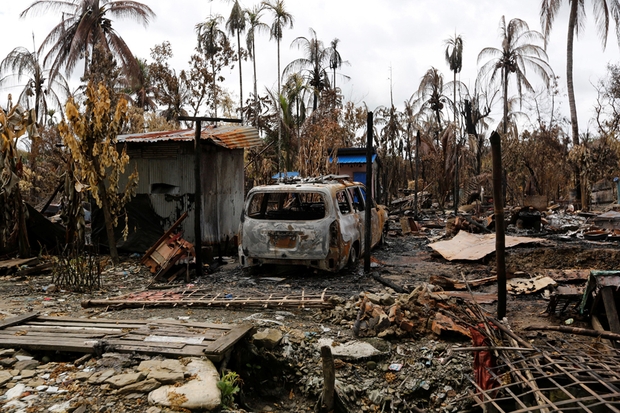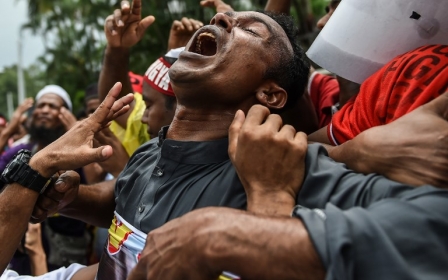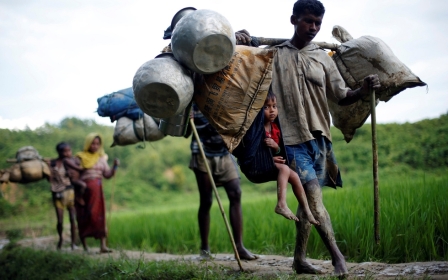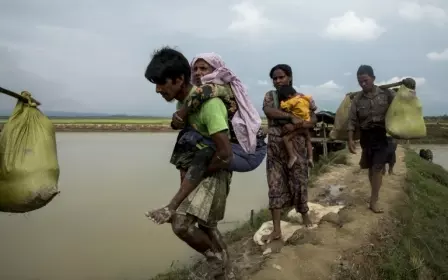Security Council calls for end to violence against Rohingya Muslims

The United Nations Security Council expressed deep concern on Wednesday about violence in Myanmar's Rakhine state, where about 400,000 Rohingya Muslims have been forced to flee to Bangladesh.
In a statement, the 15-member council "expressed concern about reports of excessive violence during the security operations and called for immediate steps to end the violence in Rakhine, de-escalate the situation, re-establish law and order, ensure the protection of civilians".
British UN Ambassador Matthew Rycroft said it was the first time in nine years the council had agreed on a statement on Myanmar.
The Security Council met behind closed doors at the request of Britain and Sweden to try to agree on a response to the crisis, but diplomats said they expected China and Russia to resist calls for a strong statement.
"We need to see an end to the violence. We need to see immediate and widespread access to humanitarian aid and relief for the people of Burma and the people of Rakhine," British Deputy UN Ambassador Jonathan Allen told reporters ahead of the meeting, referring to Myanmar by its name under British colonial rule.
Separately, UN chief Antonio Guterres acknowledged Wednesday that Rohingya Muslims were being ethnically cleansed in Myanmar as he called for a halt to the military campaign in Rakhine state.
Guterres described reports of security forces attacking civilians in Rakhine as "disturbing" and "completely unacceptable".
"I call on the Myanmar authorities to suspend military action, end the violence, uphold the rule of law and recognise the right of return of all those who had to leave the country," the secretary general said in a news conference.
Asked if he agreed the Rohingya population was being ethnically cleansed, he replied: "When one-third of the Rohingya population has got to flee the country, can you find a better word to describe it?"
Guterres called for authorities "to assure the delivery of vital humanitarian aid" in Rakhine state, with thousands of Rohingya still crossing the border every day.
The 1.1-million strong Rohingya have suffered years of discrimination in Myanmar, where they are denied citizenship even though many have longstanding roots in the country.
Myanmar's leader Aung San Suu Kyi has been widely condemned for a lack of moral leadership and compassion in the face of the crisis, denting the Nobel peace laureate's reputation.
New MEE newsletter: Jerusalem Dispatch
Sign up to get the latest insights and analysis on Israel-Palestine, alongside Turkey Unpacked and other MEE newsletters
Middle East Eye delivers independent and unrivalled coverage and analysis of the Middle East, North Africa and beyond. To learn more about republishing this content and the associated fees, please fill out this form. More about MEE can be found here.




